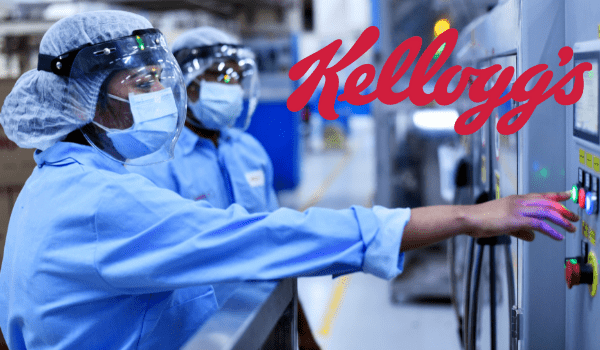We are all aware that FMCG is one of the oldest sectors in the world, and the quality of talent in this sector is very high and valued. Why? Because FMCG firms are known to have robust talent-development processes, which allow them to grow their talent and build their own timbre, preparing them for future leadership. Kellogg India is one such company in the FMCG space that invests in talent development.
However, there is a flip side to this. When companies such as Kellogg India believe in self-sufficiency and development of an internal talent pipeline, it also makes them prey to companies from upcoming and growing sectors looking to poach quality talent from the FMCG space.
“Emerging and new sectors always consider poaching talent from the FMCG industry. Irrespective of the boom in India, be it in e-commerce, dot com or media, companies have always preferred to poach talent from the FMCG sector,” shares Nimisha Das, director HR, Kellogg, South Asia.
Highly skilled and readymade talent is available in FMCG firms, especially when it comes to skills such as client / customer relationship or brand building. As per Das, the fact that Kellogg India is prone to such talent-poaching practices is a huge challenge for the Company.
How does Kellogg India tackle the poaching challenge?
With an increase in demand for talent across sectors post the pandemic, there are new startups and businesses mushrooming everywhere. It is common knowledge that some of the upcoming startups are so aggressive and ruthless that they can go to any extent to acquire and attract good talent from the market. The most popular strategy is to lure talent with large pay packages and perks.
As per Das, Kellogg does not really believe in standing in the way of people and their future career prospects. So, when people receive great offers, the Company would rather honour their decision to make a career move.
“when people join Kellogg India, they are not just joining a single entity in India, but a global company with a strong worldwide presence”
Nimisha Das, director HR, Kellogg, South Asia
Still, no company wishes to lose its key and high-potential talent. Kellogg India follows certain strategies to prevent such irreparable loss by:
Showing them a growth path — The Company does try to counsel those considering a move, by showing and discussing the career growth path that Kellogg can offer them.
Mapping talent — Kellogg India has very entrenched talent processes and talent-development programmes across all levels, regions and functions. The Company literally builds a career path for all its key talent by mapping them. “Above a certain managerial level, we start mapping our talent,” shares Das. In this talent-mapping process, the Company prepares a score card, assessing each talent in the Company before putting them through any development processes.
Talent evaluation —Employees are evaluated basis the kind of exposure they require, the projects they are suitable for and the learning they require to grow further in the Company. All these data points are discussed in the talent-review sessions at Kellogg on various levels — regional, functional, national and finally global.
“In the talent-review forums, we discuss ways in which we can promote our future leaders from within,” asserts Das. This way, each high-potential talent at Kellogg India gets identified and developed.
Leadership & talent development — The leadership and talent-development processes at Kellogg India are quite systematic and robust. Development programmes are conducted across levels, regions and functions. For the top executives, the Company has tied up with global institutes such as Harvard Business School and INSEAD. From the functional level down to the regional level, the Company has tied up with multiple trainers and vendors to develop leaders.
For instance, the BeSpoke programme at Kellogg is held at a regional level, where participants come from multiple countries including Australia, Japan and India. They get exposed to their cohorts and peers and learn from them. Then action learning projects are assigned to them, which are outside their operational region and function. These become challenges for them to deal with, and in the process, they develop holistically.
Such talent-development programmes are conducted for the workmen at the factory level as well.
“At the factory level, though the approach and talent processes differ, the fundamentals remain the same. That means, focussing on how we can make more supervisors and plant heads from the cohorts of workmen rather than hiring people from outside,” shares Das.
Kellogg India has something known as the Technician Development Programme which is meant for the workmen at the manufacturing sites. Under this programme, people are taught core technical skills coupled with managerial skills such as how to handle a team of workmen. People are also exposed to other manufacturing plants to see how processes differ from one location or site to another.
With such strong talent processes and a career-development paths and initiatives, Kellogg has managed to keep a check on the attrition level.
Das reveals that till December last year, the attrition rate stood at around seven per cent. Though it went up slightly, especially at the frontline level, it was far from alarming.
In last two years itself, Das proudly shares that Kellogg India saw 18 promotions, where talent from India was promoted to international locations. For instance, the marketing heads of South Africa and South East Asia are also from the Indian talent market.
“At Kellogg, Indian talent is very much valued especially in regions such as EMEA,” admits Das. Therefore, when people join Kellogg India, they are not just joining a single entity in India, but a global company with a strong worldwide presence.



